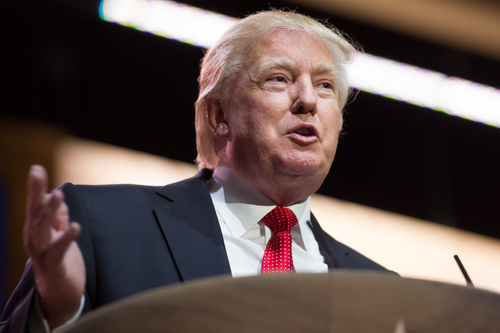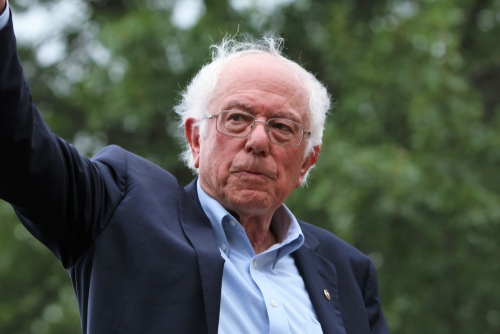Communist China just admitted defeat in the trade war with President Trump, pausing restrictions on American companies for 90 days while slashing their own tariffs by a staggering 115%.
At a Glance
- China suspended non-tariff countermeasures against 28 US entities on their “export control list” and 17 companies on their “unreliable entity list” for 90 days
- US slashed tariffs on Chinese goods from 145% to 30% while China reduced tariffs on US goods from 125% to 10%
- President Trump announced a “very strong” trade deal aimed at opening up China’s economy to American businesses
- Boeing, severely impacted by previous Chinese trade restrictions, may see resumed aircraft deliveries
- Despite the truce, China’s restrictions on rare earth elements remain in place, revealing their reluctance to fully concede
China Blinks First in the Economic Standoff
Well, well, well… Beijing just showed its cards. After years of economic warfare against American businesses, China has suddenly decided to “temporarily suspend” non-tariff retaliatory measures against dozens of US companies. This 90-day pause affects restrictions on 28 US entities on their so-called “export control list” and another 17 American companies they’ve branded as “unreliable.” Translation: China desperately needs this trade war to cool down before their already struggling economy implodes entirely. Of course, they’re framing this capitulation as merely implementing “the consensus reached” during recent high-level talks, but we all know what’s really happening here – President Trump backed them into a corner.
What’s particularly telling is the dramatic reduction in tariffs this deal secured. The US is cutting tariffs on Chinese goods from a whopping 145% down to 30%, while China is slashing theirs from 125% to just 10%. That’s a 115-point reduction by the Chinese compared to America’s 115-point cut. For those keeping score at home, that’s what negotiators call “parity” – and it took the Trump administration exactly two minutes to achieve what the Biden team couldn’t manage in four long years. Let’s not forget that Americans will see immediate benefits from reduced tariffs on items under $800, which directly helps ordinary consumers being crushed by Bidenflation.
American Industry Starts to Breathe Again
Boeing, one of America’s most iconic manufacturers, has been absolutely hammered by China’s economic punishment. Aircraft deliveries to China dropped to nearly zero as Beijing weaponized trade to inflict maximum damage on American industry. Now, following the trade truce, China has begun lifting its delivery ban on Boeing aircraft – though notably, they’re being deliberately vague about exactly when shipments might resume. Meanwhile, Boeing secured a new order from Saudi leasing firm AviLease for 20 737 MAX 8 jets, showing that not everyone in the world was playing China’s game of economic isolation.
“We have the confines of a very, very strong deal with China. But the most exciting part of the deal…that’s the opening up of China to US business.” – US President Donald Trump.
The markets clearly understand who won this round. US stocks surged following the announcement of the trade agreement, with oil prices also climbing on expectations of increased economic activity. It’s almost as if having a president who understands business, negotiation, and the importance of American economic strength makes a difference! Contrast this with the Fed’s concerns during the Biden administration – Vice Chair Philip Jefferson was openly warning about tariffs causing inflation while constantly downgrading growth forecasts. Funny how quickly economic forecasts can change when actual leadership returns to the White House.
Reading Between the Lines
Let’s be clear about what this “suspension” really means. China isn’t permanently removing these measures – they’re pausing them for 90 days while they assess whether America will hold firm. The companies on their blacklists have faced severe restrictions on receiving dual-use items and conducting normal business operations in China. These aren’t minor inconveniences; they’re deliberate attempts to cripple American technological and industrial capacity. And notably, China’s export controls on seven rare earth elements announced in April remain firmly in place – showing they’re still keeping some economic weapons loaded.
“Tariff announcements and heightened uncertainty about government policies in general are the dominant economic developments of more recent weeks and have caused me to look carefully at my forecasts.” – Fed Vice Chair Philip Jefferson.
Chinese officials are reportedly viewing this deal as a strategic win, claiming they achieved many demands without significant economic reforms. That’s cute. The reality is they’re desperately trying to save face while making major concessions. When a communist regime that’s built its entire economic strategy around unfair trade practices suddenly agrees to cut tariffs by 115 percentage points, that’s not a “strategic win” – that’s a retreat. President Trump’s approach has always been clear: fair trade or no trade. After watching America’s industrial heartland get hollowed out for decades, it’s about time someone stood up for American workers and businesses rather than kowtowing to Beijing.






